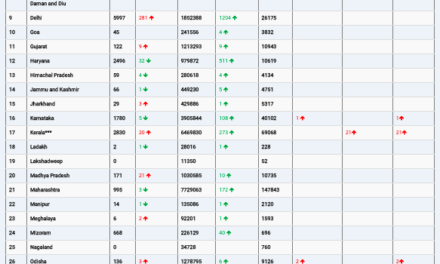Subheading: Study Reveals How Valence Weighting Bias Influences Task Delay
Procrastination, often viewed as a universal tendency, may be more intricately tied to individuals’ attitudes and perceptions than previously thought, suggests new research conducted by psychologists at The Ohio State University.
The study, published in the journal Personality and Individual Differences, delves into the concept of valence weighting bias, which refers to the tendency of individuals to draw more strongly from either their positive or negative attitudes when navigating new situations. Led by senior author Russell Fazio and first author Javier Granados Samayoa, the research sheds light on how this bias influences decision-making, particularly in tasks perceived as burdensome or unpleasant.
“In examining the interplay between positive and negative signals, we aimed to understand how individuals approach tasks and whether certain attitudes predispose them to procrastinate,” explained Granados Samayoa.
In a series of studies, the researchers explored real-world scenarios to gauge the impact of valence weighting bias on task completion. The first study focused on tax return preparation, revealing a correlation between a more negative weighting bias and a tendency to delay filing returns. Participants who exhibited a stronger inclination towards negative attitudes were more likely to postpone this aversive task.
Building upon these findings, the second study involved college students participating in a research program. Results demonstrated that students with a combination of negative weighting bias and self-reported low motivation were prone to procrastinate, delaying their participation in research activities.
“Investigating the nuances of task-related behavior, we found that individuals who possess a negative bias coupled with diminished self-control are particularly susceptible to procrastination,” Granados Samayoa remarked.
The third study sought to establish a causal relationship between valence weighting bias and task completion. By manipulating the bias among self-reported procrastinators, researchers observed a significant shift in behavior. Participants who underwent a shift towards neutrality in weighing positive and negative signals exhibited a marked improvement in task completion, accumulating credit hours more efficiently compared to the control group.
Notably, the study highlights the potential benefits of a negative weighting bias in fostering realistic assessments of readiness, particularly in academic contexts. However, the researchers caution against extreme biases, emphasizing the importance of maintaining a balanced perspective.
“This research underscores the intricate interplay between attitudes and behavior, shedding light on the underlying mechanisms driving procrastination,” Fazio noted. “By understanding these dynamics, we can develop strategies to mitigate procrastination tendencies and enhance task engagement.”
Supported by the John Templeton Foundation and the Social Sciences and Humanities Research Council, this study offers valuable insights into the psychological factors influencing decision-making processes and task management strategies. As further research unfolds, efforts to address procrastination may benefit from targeted interventions aimed at promoting balanced attitudes and effective self-control mechanisms.











